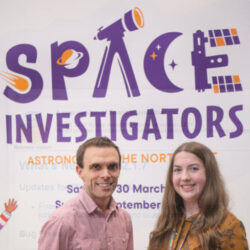CHEMmunicate: an ice breaking game to boost communication and community
Dr Cristina Navarro Reguero and Dr Matthew Hopkinson designed CHEMmunicate, a fun team game where students draw chemical structures by asking yes/no questions—boosting communication skills and reinforcing organic chemistry knowledge.









